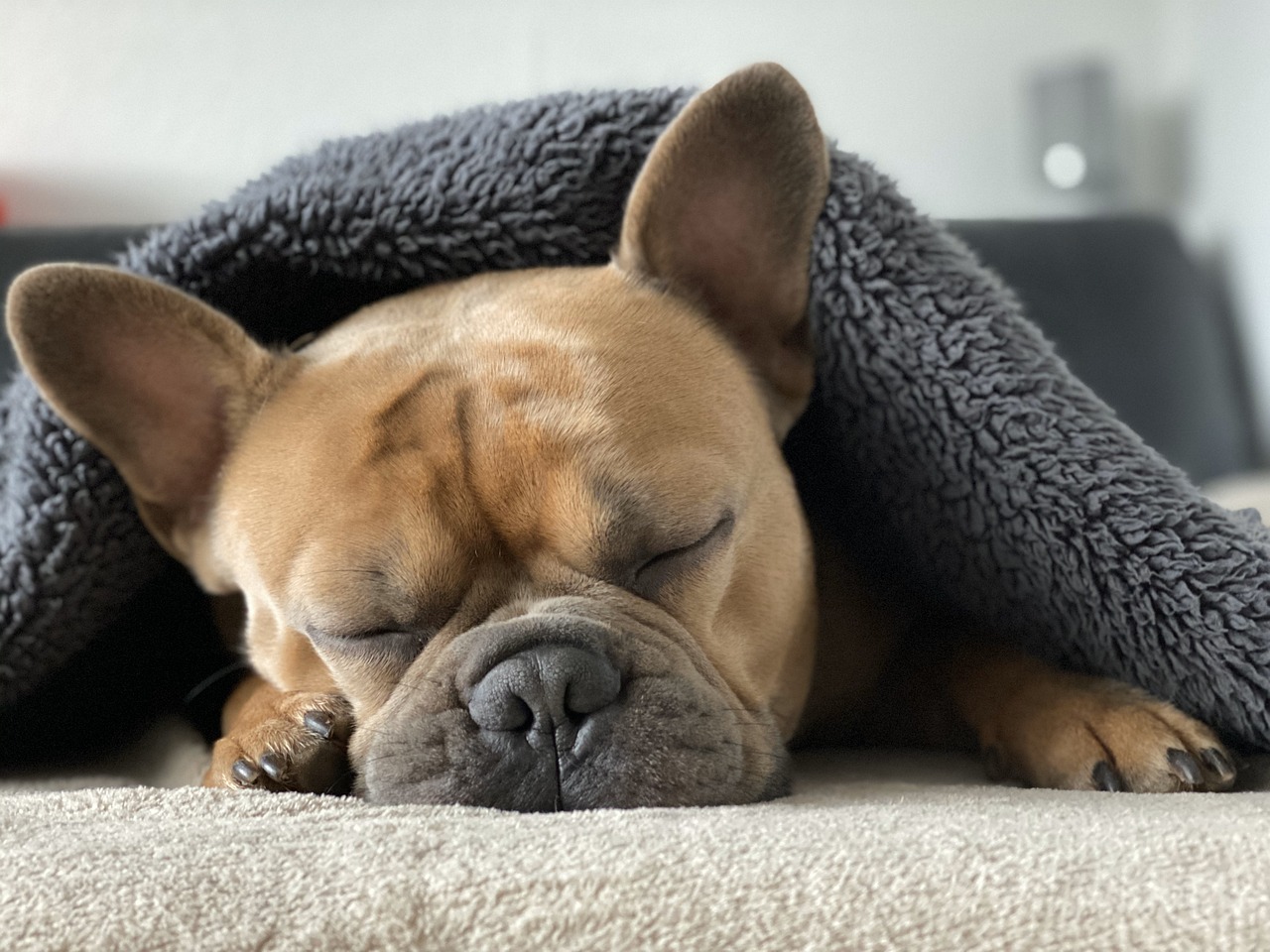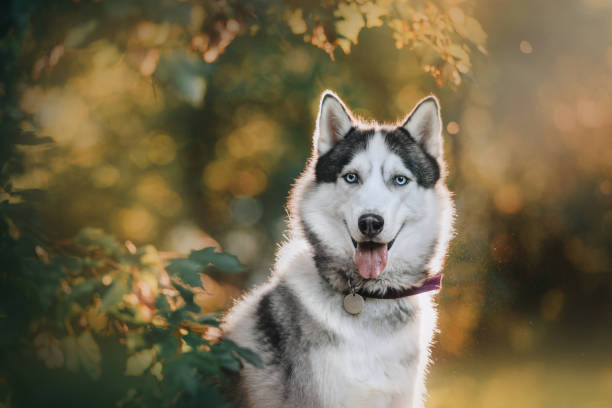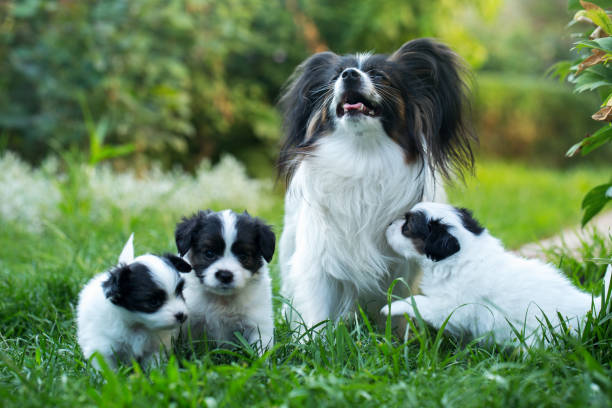A French bulldog is a small dog breed designed to resemble the look of a bulldog. Their signature bat-like ears distinguish these dogs, commonly kept as pet companions. Their relatively small stature and minimal exercise requirements make them perfect pets for those residing in apartments.
There’s no doubt that French Bulldogs are adorable. With their big eyes and squishy faces, it’s hard not to fall in love with them. But before you bring one home, there are a few things you need to know about taking care of them. French Bulldogs are more high-maintenance than other breeds, requiring attention and care.
Frenchie puppies are a lot of work, but they are also a lot of fun. When you first get your puppy of this breed, there are a few things you need to do to make sure he is healthy and happy. As with any new pet, there are some things you will need to do to properly care for this breed of puppy.
Diet
Diet is very important when taking care of a French bulldog puppy. They need plenty of protein and calcium to grow up healthy and strong. It’s also important to make sure they get plenty of water. You can give your puppy fresh or boiled water that has been cooled down. Puppies shouldn’t eat anything other than dog food until they are six months old.
How Much to Feed Your French Bulldog Puppy
A French bulldog pup should be fed about three times a day. Start with one cup of food in the morning, one at lunch, and one in the evening. As your puppy gets older, you will need to increase food intake. When your dog is six months old, he should eat four cups daily.
What Not to Feed Your French Bulldog Puppies
When it comes to puppies, there are many things to consider regarding what you should and shouldn’t feed them. This is especially true for purebred dogs. You should avoid feeding your puppy anything that contains chocolate, grapes, raisins, onions, garlic, and macadamia nuts. These foods can be toxic to dogs and can cause serious health problems.
Another thing to avoid feeding your Frenchie puppy is dairy products. Puppies cannot digest dairy foods properly, leading to stomach upset and diarrhoea. Instead, opt for high-quality puppy food for French Bulldogs or small-breed puppies. Feed your puppy 2-3 meals daily and always have fresh water available.


Tips for Feeding Your French Bulldogs
Provide High-quality Food
When feeding your French bulldogs, use high-quality dog food specifically for puppies.
Feeding Frequency
French bulldog puppies should be fed 3-4 times per day. Be sure to provide plenty of fresh water for your puppy to drink. Puppies should not be given table scraps, leading to digestive problems.
Exercise
Exercise is important for all puppies, but it’s especially crucial for French bulldog puppies. These little dogs are prone to joint problems and other health issues, so they need plenty of exercise. But don’t overdo it – French bulldog puppies shouldn’t be exercised too much or too hard, or they could have joint problems.
A good rule of thumb is to exercise your French Bulldog for about 15 minutes daily. This can include walking, playing fetch, and running around in the backyard if you can add strength training into the mix – such as playing tug-of-war or using a chew toy! Take things slowly first, and always be careful not to over-exert your puppy.
Here are some additional tips:
- Start slow
- Add time and distance gradually
- Take plenty of breaks
- Vary your routine
- Make sure your pup is having fun
- Keep an eye on them
- Get them potty trained


Grooming
Puppy grooming is essential for your Frenchie’s health and should be started as soon as you bring your new furry friend home. The following are some basic tips on how to groom a French Bulldog puppy:
Brushing
French Bulldog loves grooming brushes. Start by brushing your puppy’s fur daily to remove dirt, debris, or mats. A slicker brush is ideal for this task.
Nail Care
Trim your pup’s nails regularly, as overgrown nails can cause discomfort and health problems.
Check the Ears
Check your Frenchie’s ears regularly for infection or wax buildup, and clean them with a cotton ball and gentle dog ear cleaner if necessary.
Oral Care
Brush your dog’s teeth at least once a week to keep his gums and teeth healthy and free of plaque and tartar buildup. Start brushing your dog’s teeth at a young age for them to get used to the task.
Training
One of the most important things you can do as a fur parent is to provide proper training. This means teaching your pup basic obedience commands such as sit, stay, come, and down. It’s also important to socialize your pup early on so they become comfortable interacting with other people and other pets. As your French bulldog puppy grows older, continue providing regular training sessions to ensure that they maintain good behaviour.
Crate Training
Training in a crate is an important part of raising a French bulldog. The crate should be big enough for the puppy to stand up, turn around, and lie in. The puppy should also have a water dish and a toy in the crate to keep the dog happy and healthy.
The crate should be placed in a busy area of the house so the puppy will not feel isolated. The puppy should be taken outside to be eliminated regularly and praised when eliminated in the correct spot. The crate can also be used as a place for the puppy to sleep at night or when the family is away from home.
Housebreaking
Housebreaking your Frenchie can be overwhelming, but it can be done with patience and consistency. The most important thing to remember is to be patient and take things slow. You will likely have some accidents along the way, but don’t get discouraged – keep working at it.
You can do a few things to help make housebreaking your Frenchie easier. One is to start training them as soon as you get them home. Begin by teaching them where they are supposed to go potty – this might involve taking them outside regularly or using a designated potty spot in your home.
If you catch them going potty inside, say “no” firmly and immediately take them outside or to their potty spot.
Positive Reinforcement
Positive reinforcement is one of the most important tools in training a French bulldog puppy. It is a technique that rewards good behaviour with something the dog enjoys, such as a treat, petting or verbal praise. This helps teach the puppy what desired behaviours are and makes them more likely to repeat them.
It’s important to start using positive reinforcement early in training, as puppies learn best when they are young. Be consistent with your rewards; always give them immediately after the desired behaviour occurs. If you wait too long, the puppy may not connect the behaviour with the reward.


Health
French Bulldogs make great pets for those looking for a low-maintenance dog. They are not as active as other breeds but still need some exercise. Taking your French Bulldog for a walk or playing with them in the yard every day is important.
In addition to exercise, French Bulldogs also need proper nutrition and veterinary care. Feed your Frenchie a high-quality diet appropriate for their age and size. Schedule regular checkups with your veterinarian and follow their vaccinations and preventive care recommendations.
Vaccination
Getting your French Bulldog vaccinated early is one of the most important things you can do for his health. The vaccinations protect your puppy from serious diseases, which are required by law in most states. Your veterinarian will recommend a vaccination schedule based on your puppy’s age and risk factors.
Most puppies receive their first vaccinations when they are six to eight weeks old. As adult dogs, they will need additional vaccinations at 12 weeks and 16 weeks old. There are several different types of vaccines, and your veterinarian may recommend more than one type for your puppy.
The most common types of vaccines include rabies, distemper, hepatitis, parvovirus, and leptospirosis.
Health Concerns
Bulldogs are prone to many health problems, including breathing, joint, and eye problems. It’s important to be aware of these potential health risks and take steps to minimize them.
One common problem for Bulldogs is respiratory difficulty. This is often caused by their short snouts, making it difficult for them to breathe. Bulldogs are also prone to overheating, so keeping them cool in summer weather is important.
Another common problem for Bulldogs is joint pain. This can be caused by the breed’s large body size and heavy weight. Owners should take steps to reduce stress on the dog’s joints, such as avoiding stairs and choosing soft surfaces for walking.
Bulldogs are also prone to eye problems, including dry eyes, cataracts, and cherry eyes. Bulldogs can also suffer from hyperthyroidism. This is a disease in which the dog’s thyroid gland produces too much hormone, leading to weight problems, excessive thirst and urination, lethargy and even seizures.
Another common health problem for Bulldogs is hip dysplasia. This inherited disease causes bone and cartilage to grow abnormally in the dog’s hip joint.
Bulldogs are also prone to skin problems, including hair loss due to a condition known as alopecia, which is common in the breed. Bulldog owners should also be alert for skin cancers and other tumours.
Conclusion
French bulldog puppies are a joy to have but require a lot of care. Following the tips in this article, you can ensure your puppy has a healthy, happy life. Be sure to also take your puppy to the vet for regular checkups. Thanks for reading!



